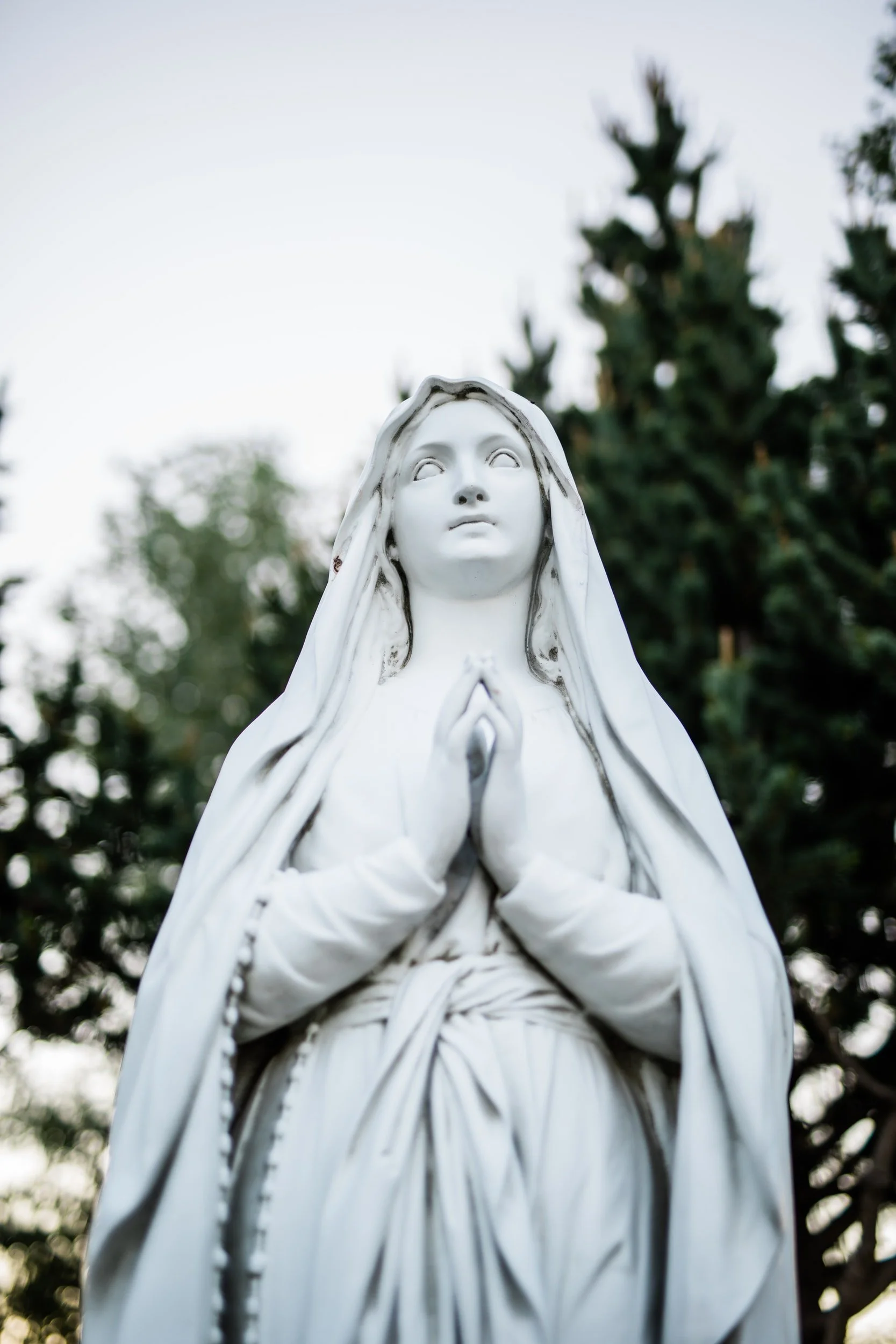Day of the Church Year: 4th Sunday of Advent
Scripture Passage: Luke 1:39-55
Seemingly out of the blue, the angel Gabriel visits a young, unmarried Jewish woman named Mary and announces she will bear a son named Jesus, a son who will be called the Son of the Most High, a child who will be Son of God. Despite the real danger for Mary, being pregnant but not married at this moment in history, Mary responds to the angel Gabriel: Here am I, the servant of the Lord; let it be with me according to your word. Mary then rushes to the home of her cousin, Elizabeth. The child in Elizabeth’s womb leaps for joy at the sound of Mary’s greeting for the child Elizabeth will bear will be John the Baptist. Elizabeth identifies Mary as the mother of her Lord. Mary then rejoices in God who looks with favor on lowly servants, who humbles the proud, who brings down the powerful from their thrones, who fills those who hunger, who empties those who are wealthy, who keeps promises from generation to generation.
In this last Sunday of Advent, we hear how God enters the world, and though Mary expects a son of the Most High, a humbler story could not be told. Though filled with danger for Mary, a more joyous story could not be told. Though Mary has every reason to question and doubt this strange experience she has with angel Gabriel, she rejoices in God doing a totally new thing-through her! Instead of stubbornly holding onto her own dreams and plans for her life, she gives her life over to the call of God. And somehow, she recognizes that by doing so, she enters into a life not of drudgery and pain but a life of joy and abundance—to be chosen by God to contribute to the world in this particular and very special way.
We are living in a strange time. In some ways, we have returned to quote-unquote normal even though Covid-19 continues to spread through our community, our nation, and the world. There is also something very strange going on with the US economy—incredible inflation, a hot job market with so many job openings that many businesses cannot function as desired, and at least here in Phoenix, sky-rocketing rents and home prices. The economy and the pandemic have only contributed to our own personal questions and challenges and struggles. The sense of not knowing what will happen is thick. Truth be told, we actually never knew what the future held, but I think, prior to January 2020, we deluded ourselves more successfully than we can now. I imagine some of us--maybe many of us--find ourselves asking existential questions in this strange in-between place: now that the world has changed, what should I do? What am I here for? What is the meaning of all this? And maybe most urgently: Will this ever end? This is the most adventy-Advent we’ve probably ever experienced. The expectation, the waiting, the holding of our collective breath. In the big picture of our lives right now, the scandal of God entering human life through the humble Mary is maybe the least of our worries, the most grounding thing we’ve heard this week, the least scandalous thing we’ve heard in a while. But her acceptance of God’s call to bear Jesus and her joy in the midst of a very strange situation might be illuminating for us today.
For while the story of the angel Gabriel’s visit to Mary, her eventual pregnancy, and even the birth of Jesus seem commonplace to us, her actual experience of all these events must have been very strange, very disorienting. It’s hard to imagine how that conversation went with her parents, with Joseph, with the village women. One day, she was doing the things every woman her age in that place did; the next day, she was to bear the Son of God. When she rushes to the home of Elizabeth who calls her “the mother of my Lord,” Mary rejoices. She rejoices. In a dizzying reorientation of her life, she rejoices—and gives her life over to the call of God.
In my home hangs a piece of art someone who is part of the Grace community gave me a few years ago. The words printed there inspired for me this Advent poem that, I think, reflects the joy of Mary.
No one has ever become poor by giving.
I puzzle over these words
taking them literally.
Surely, if we give enough,
we reach the end
of our finite resources.
Yet we give more than money
and need more than money.
The oft-repeated lie
of this and many cultures is:
Money is all you need.
But my friend taught me,
my friend who is poor in cash but rich in love,
“It’s just money.”
There is more.
Jesus tells us:
We do not live by bread alone.
Perhaps he meant the eternal,
but I mean love.
We do not become poor by giving.
Somehow, we grow rich
in love, in joy, in purpose.
The oft-repeated lie
isolates
isolates
isolates
until, stripped bare, the one
who had always received
has nothing
and no one.
No one has ever become poor by giving.
So, give your life away.
Give and give and give.
Even in poverty, you will know abundance.
Thanks be to God! Amen.

